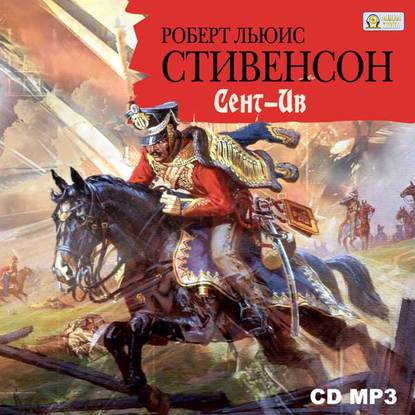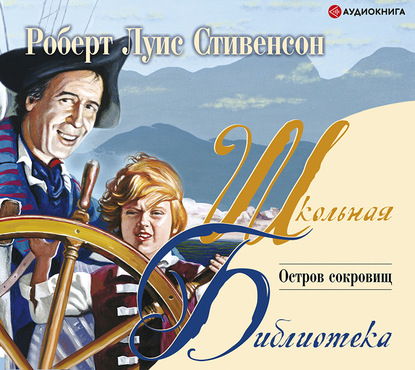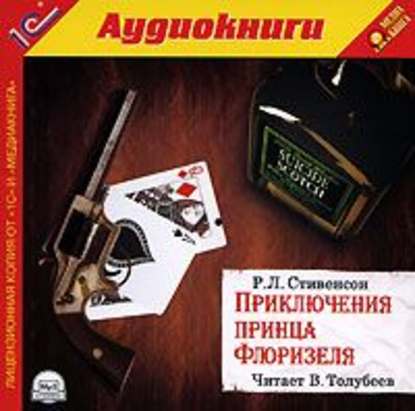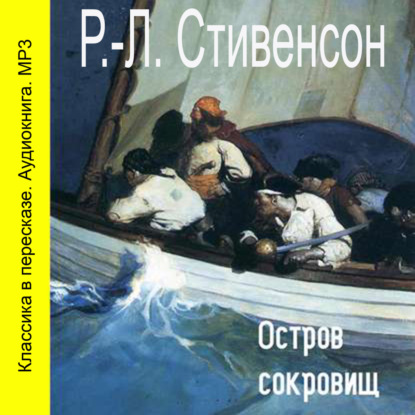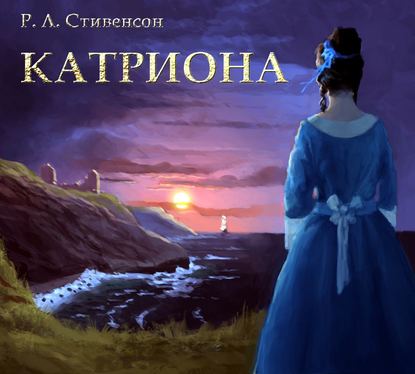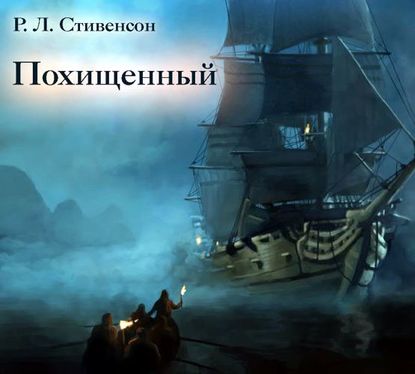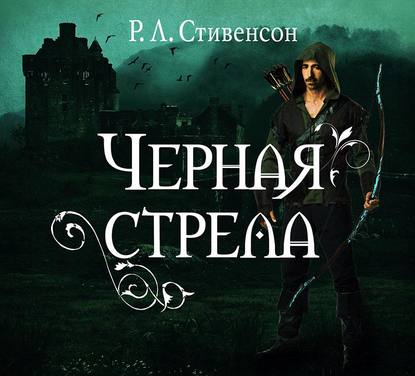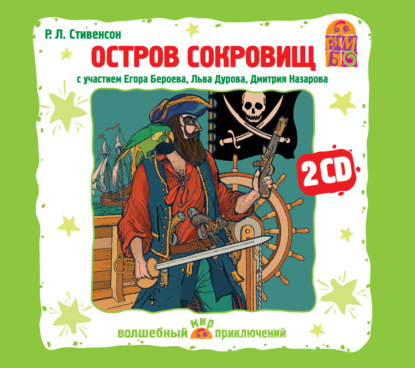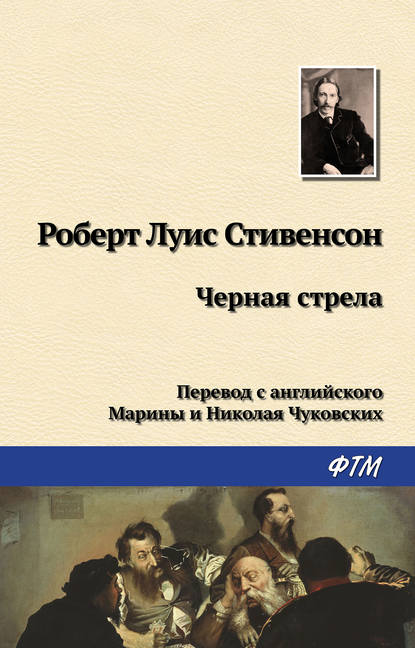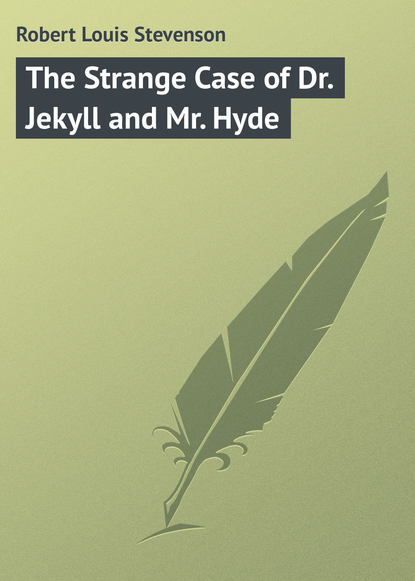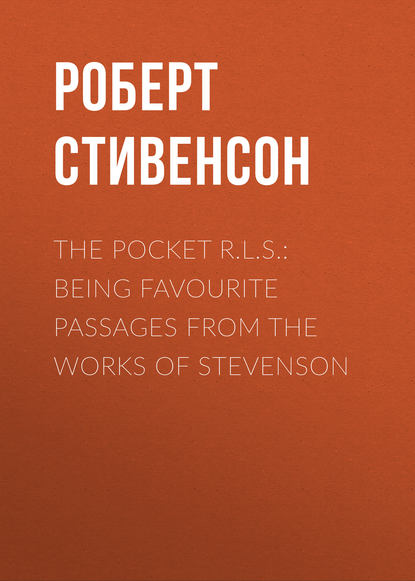
Полная версия
The Pocket R.L.S.: Being Favourite Passages from the Works of Stevenson
Had he but talked – talked freely – let himself gush out in words (the way youth loves to do, and should) there might have been no tale to write upon the Weirs of Hermiston.
A young man feels himself one too many in the world; his is a painful situation; he has no calling; no obvious utility; no ties but to his parents, and these he is sure to disregard. I do not think that a proper allowance has been made for this true cause of suffering in youth; but by the mere fact of a prolonged existence, we outgrow either the fact or else the feeling. Either we become so callously accustomed to our own useless figure in the world, or else – and this, thank God, in the majority of cases – we so collect about us the interest or the love of our fellows, so multiply our effective part in the affairs of life, that we need to entertain no longer the question of our right to be.
It had been long his practice to prophesy for his second son a career of ruin and disgrace. There is an advantage in this artless parental habit. Doubtless the father is interested in his son; but doubtless also the prophet grows to be interested in his prophecies. If the one goes wrong the others come true.
When the old man waggles his head and says, ‘Ah, so I thought when I was your age,’ he has proved the youth’s case. Doubtless, whether from growth of experience or decline of animal heat, he thinks so no longer; but he thought so while he was young; and all men have thought so while they were young, since there was dew in the morning or hawthorn in May; and here is another young man adding his vote to those of previous generations and riveting another link to the chain of testimony. It is as natural and as right for a young man to be imprudent and exaggerated, to live in swoops and circles, and beat about his cage like any other wild thing newly captured, as it is for old men to turn grey, or mothers to love their offspring, or heroes to die for something worthier than their lives.
Youth is the time to go flashing from one end of the world to the other both in mind and body; to try the manners of different nations; to hear the chimes at midnight; to see sunrise in town and country; to be converted at a revival; to circumnavigate the metaphysics, write halting verses, run a mile to see a fire, and wait all day long in the theatre to applaud HERNANI. There is some meaning in the old theory about wild oats; and a man who has not had his green-sickness and got done with it for good is as little to be depended on as an unvaccinated infant.
When we grow elderly, how the room brightens and begins to look as it ought to look, on the entrance of youth, grace, health and comeliness! You do not want them for yourself, perhaps not even for your son, but you look on smiling; and when you recall their images – again it is with a smile. I defy you to see or think of them and not smile with an infinite and intimate but quite impersonal pleasure.
To speak truth there must be moral equality or else no respect; and hence between parent and child intercourse is apt to degenerate into a verbal fencing-bout, and misapprehensions to become engrained. And there is another side to this, for the parent begins with an imperfect notion of the child’s character, formed in early years or during the equinoctial gales of youth; to this he adheres, noting only the facts which suit with his pre-conception; and wherever a person fancies himself unjustly judged, he at once and finally gives up the effort to speak truth.
So, as we grow old, a sort of equable jog-trot of feeling is substituted for the violent ups and downs of passion and disgust; the same influence that restrains our hopes quiets our apprehensions; if the pleasures are less intense, the troubles are milder and more tolerable; and in a word, this period for which we are asked to hoard up everything as for a time of famine, is, in its own right, the richest, easiest, and happiest of life. Nay, by managing its own work and following its own happy inspiration, youth is doing the best it can to endow the leisure of age. A full, busy youth is your only prelude to a self-contained and independent age; and the muff inevitably develops into a bore.
To know what you like is the beginning of wisdom and of old age. Youth is wholly experimental. The essence and charm of that unquiet and delightful epoch is ignorance of self as well as ignorance of life.
The schoolboy has a keen sense of humour. Heroes he learns to understand and to admire in books; but he is not forward to recognise the heroic under the traits of any contemporary.
Discredited as they are in practice, the cowardly proverbs hold their own in theory; and it is another instance of the same spirit, that the opinions of old men about life have been accepted as final. All sorts of allowances are made for the illusions of youth; and none, or almost none, for the disenchantments of age. It is held to be a good taunt, and somehow or other to clinch the question logically, when an old gentleman waggles his head and says: ‘Ah, so I thought when I was your age.’ It is not thought an answer at all, if the young man retorts: My venerable sir, so I shall most probably think when I am yours.’ And yet the one is as good as the other: pass for pass, tit for tat, a Roland for an Oliver.
What shall we be when we grow really old? Of yore, a man was thought to lay on restrictions and acquire new deadweight of mournful experience with every year, till he looked back on his youth as the very summer of impulse and freedom.
And it may be worth while to add that these clouds rolled away in their season, and that all clouds roll away at last, and the troubles of youth in particular are things but of a moment.
Through what little channels, by what hints and premonitions, the consciousness of the man’s art dawns first upon the child, it should be not only interesting but instructive to inquire. A matter of curiosity to-day, it will become the ground of science to-morrow. From the mind of childhood there is more history and more philosophy to be fished up than from all the printed volumes in a library.
I could not finish THE PIRATE when I was a child, I have never finished it yet; PEVERIL OF THE PEAK dropped half way through from my schoolboy hands, and though I have since waded to an end in a kind of wager with myself, the exercise was quite without enjoyment. There is something disquieting in the considerations. I still think the visit to Ponto’s the best part of the BOOK OF SNOBS: does that mean that I was right when I was a child, or does it mean that I have never grown since then, that the child is not the man’s father, but the man? and that I came into the world with all my faculties complete, and have only learned sinsyne to be more tolerant of boredom?
The child thinks much in images, words are very live to him, phrases that imply a picture eloquent beyond their value.
Somehow my playmate had vanished, or is out of the story, as the sagas say, but I was sent into the village on an errand; and, taking a book of fairy tales, went down alone through a fir-wood, reading as I walked. How often since then has it befallen me to be happy even so; but that was the first time: the shock of that pleasure I have never since forgot, and if my mind serves me to the last, I never shall; for it was then I knew I loved reading.
The remainder of my childish recollections are all of the matter that was read to me, and not of any manner in the words. If these pleased me, it was unconsciously; I listened for news of the great vacant world upon whose edge I stood; I listened for delightful plots that I might re-enact in play, and romantic scenes and circumstances that I might call up before me, with closed eyes, when I was tired of Scotland, and home, and that weary prison of the sick-chamber in which I lay so long in durance.
I rose and lifted a corner of the blind. Over the black belt of the garden I saw the long line of Queen Street, with here and there a lighted window. How often before had my nurse lifted me out of bed and pointed them out to me, while we wondered together if, there also, there were children that could not sleep, and if these lighted oblongs were signs of those that waited like us for the morning.
There never was a child but has hunted gold, and been a pirate, and a military commander, and a bandit of the mountains; but has fought, and suffered shipwreck and prison, and imbrued its little hands in gore, and gallantly retrieved the lost battle, and triumphantly protected innocence and beauty.
None more than children are concerned for beauty, and, above all, for beauty in the old.
So in youth, like Moses from the mountain, we have sights of that House Beautiful of art which we shall never enter. They are dreams and unsubstantial; visions of style that repose upon no base of human meaning; the last heart-throb of that excited amateur who has to die in all of us before the artist can be born. But they come in such a rainbow of glory that all subsequent achievement appears dull and earthly in comparison. We are all artists; almost all in the age of illusion, cultivating an imaginary genius, and walking to the strains of some deceiving Ariel; small wonder, indeed, if we were happy! But art, of whatever nature, is a kind of mistress; and though these dreams of youth fall by their own baselessness, others succeed, grave and more substantial; the symptoms change, the amiable malady endures; and still at an equal distance, the House Beautiful shines upon its hill-top.
Children, for instance, are able enough to see, but they have no great faculty for looking; they do not use their eyes for the pleasure of using them, but for by-ends of their own; and the things I call to mind seeing most vividly were not beautiful in themselves, but merely interesting or enviable to me, as I thought they might be turned to practical account in play.
The true parallel for play is not to be found, of course, in conscious art, which, though it be derived from play, is itself an abstract, impersonal thing, and depends largely upon philosophical interests beyond the scope of childhood. It is when we make castles in the air and personate the leading character in our own romances, that we return to the spirit of our first years. Only, there are several reasons why the spirit is no longer so agreeable to indulge. Nowadays, when we admit this personal element into our divagations, we are apt to stir up uncomfortable and sorrowful memories, and remind ourselves sharply of old wounds..Alas! when we betake ourselves to our intellectual form of play, sitting quietly by the fire or lying prone in bed, we rouse many hot feelings for which we can find no outlet. Substitutes are not acceptable to the mature mind, which desires the thing itself; and even to rehearse a triumphant dialogue with one’s enemy, although it is perhaps the most satisfactory piece of play still left within our reach, is not entirely satisfying, and is even apt to lead to a visit and an interview which may be the reverse of triumphant after all.
Конец ознакомительного фрагмента.
Текст предоставлен ООО «ЛитРес».
Прочитайте эту книгу целиком, купив полную легальную версию на ЛитРес.
Безопасно оплатить книгу можно банковской картой Visa, MasterCard, Maestro, со счета мобильного телефона, с платежного терминала, в салоне МТС или Связной, через PayPal, WebMoney, Яндекс.Деньги, QIWI Кошелек, бонусными картами или другим удобным Вам способом.



